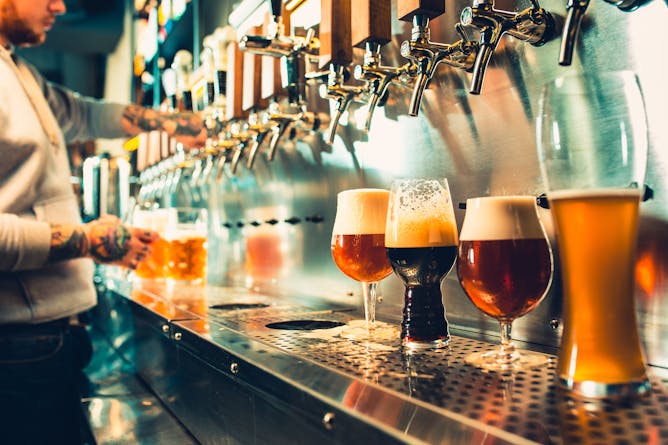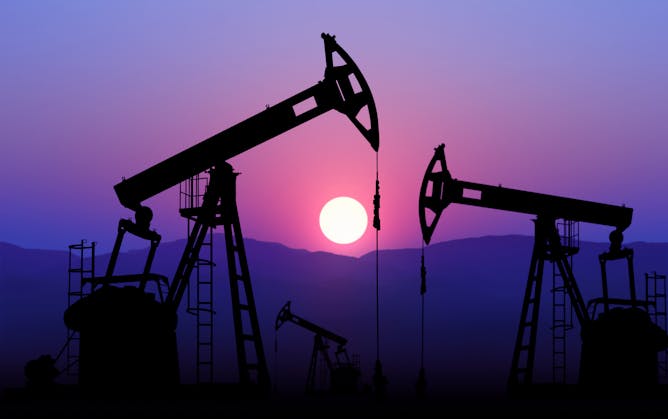|
|
|
Editor's note
|
|
Since I stopped drinking a few years ago I’ve noticed a change not only in the types of alcohol-free drinks available, but also in people’s attitudes. Gone are the lime and sodas and the diet cokes, to be replaced with alcohol-free craft beers, speciality spirits and de-alcoholised wines. Gone too are the comments and questions as to why I’m not drinking tonight, and it’s now pretty much accepted that not everyone wants to get drunk.
It’s clear attitudes to alcohol are changing, young people across the UK are drinking less, and globally, there’s been a rise of “positive sobriety” or “mindful drinking” movements. But while many people are developing “healthier” relationships with alcohol, this isn’t the case for everyone.
Baby boomers, in particular, are still the most likely generation to drink heavily and the least likely to abstain from alcohol. Baby boomers, those in the 55-64 age group, are also now the most likely to be admitted to hospital because of alcohol-related diseases and injuries – and it’s creating a “polarisation” in generational drinking habits. So while it might not be the end of “booze Britain” just yet, for the younger generations at least, it seems as though things are heading in the right direction.
We also look at why fossil fuel drilling could be heating up the planet from within, and question why some people have, like, such a problem with the word “like”.
Meanwhile, as the UK government ordered urgent action to stem a rise in measles cases, check out the first of our global special round-ups, which focuses on the issue of vaccines and anti-vaxxers. Written by Heather Walmsley, a Conversation Health Editor based in Canada, it points to content produced across The Conversation’s international network.
|
Holly Squire
Commissioning Editor
|

|
|
Top stories
|

Master1305/Shutterstock
Emily Nicholls, University of Portsmouth
Young people are going teetotal but older generations are failing to follow in their sober footsteps.
|

Robert Lucian Crusitu/Shutterstock
Rizwan Nawaz, University of Leeds; Adel Sharif, University of Surrey
Fossil fuels are heating the atmosphere – but the fact that we're burning them may not be the only reason.
|

Use it at your peril.
Shutterstock
Rebecca Woods, University of Huddersfield
The word 'like' has a grammar, and by looking at it, we can learn a lot about what 'like' means and what it contributes to someone’s speech.
|
Arts + Culture
|
-
Shareena Z Hamzah, Swansea University
We shouldn't assume that discussion of bodily changes necessarily means progression towards a more equal society.
-
Tom Webb, University of Portsmouth
Technology in sport is a constant source of controversy as players and officials struggle to keep up.
|
|
Politics + Society
|
-
Kim McGuire, University of Central Lancashire
Why do people readily accept potentially unjust decisions by their government?
-
Sam Halvorsen, Queen Mary University of London
The leader of the centre-left Frente de Todos alliance won a surprise victory in primary elections in August.
|
|
Environment + Energy
|
-
Philip Donkersley, Lancaster University
It's unlikely that all species of bees will go extinct anytime soon – but current losses could still have a terrible impact on food supplies and ecosystems.
|
|
Health + Medicine
|
-
Helena Robinson, Bangor University
Donated tissue samples are often used in research to help create new methods of diagnosis and treatment.
|
|
Business + Economy
|
-
Kamal A Munir, Cambridge Judge Business School; Hamza Mudassir, Cambridge Judge Business School
The technology behind the new OS certainly looks promising. But it's no magic solution to the US trade ban.
|
|
| |
Featured events
|

|
Institute of Mental Health, University of Nottingham Innovation Park, , Nottingham, Nottingham, NG7 2TU, United Kingdom of Great Britain and Northern Ireland — University of Nottingham
|

|
34 Broad Street, Oxford, Oxfordshire, OX1 3BD, United Kingdom of Great Britain and Northern Ireland — University of Oxford
|

|
Berrill Lecture Theatre The Open University Walton Hall, Milton Keynes, Buckinghamshire, MK7 6AA, United Kingdom of Great Britain and Northern Ireland — The Open University
|

|
Here East, Queen Elizabeth Park, London, London, City of, E15 2GW, United Kingdom of Great Britain and Northern Ireland — UCL
|
|
|
|
| |
| |
| |
| |
| |
|
|
|
|
|
|
|